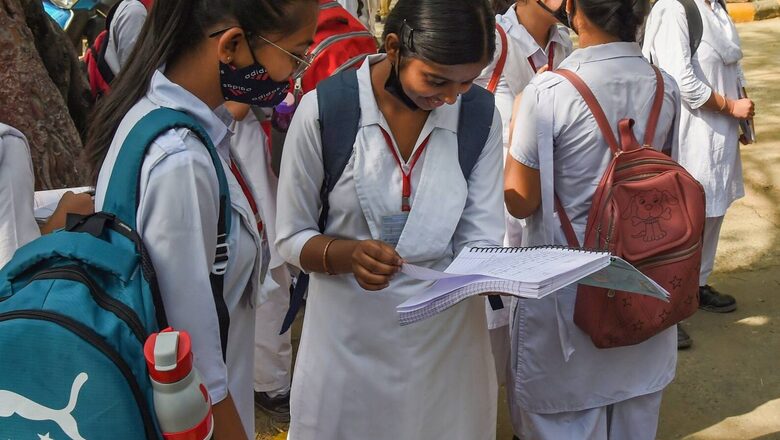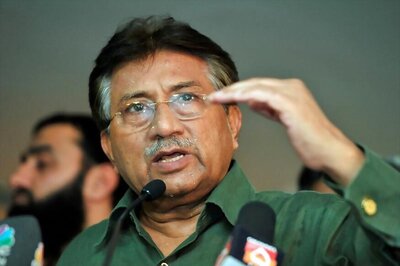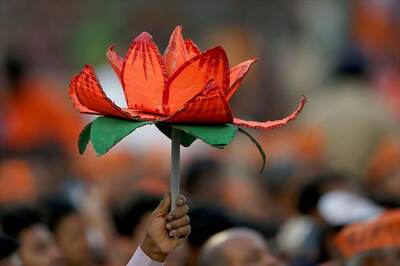
views
Pakistan is having a major shortage of paper. The country’s paper association has said that due to the paper crisis in the country, books will not be available to students in the new academic year starting August 2022. The paper crisis has been attributed to the economic crisis, rising inflation, a heavy tax levied on imported paper, and due to monopoly of the local paper industries.
This means the education sector will be affected. Several students will not be able to get textbooks. Further, this comes at a time when Pakistan’s schools and colleges are gearing up for the new academic session. School boards in Sindh, Punjab, and Khyber Pakhtunkhwa will not be able to print new textbooks for the upcoming academic year and millions of students will not be provided textbooks, said Publishers and Booksellers Association of Pakistan.
Further, the unavailability of textbooks will affect middle-class students. Educational institutions in the country could exploit the parents of the students and force them to pay huge amounts to buy books.
What has led to the paper shortage?
There are around 18,000 businesses involved in printing and packaging in Pakistan. These companies and their supply chain management is suffering now due to the wrong policies of the government. Taxes have been imposed, and along with rising inflation, there is a paper crisis in the country. The publishers have warned that there will be an acute shortage of textbooks this year if the prices of locally manufactured paper are not fixed.
The publishers are facing shortage of imported paper. This has been heavily taxed by the government. The paper importers are suffering due to heavy taxes and the local paper mills are unable to produce enough paper to meet the demand, said Aziz Khalid, Chairman of Publishers and Booksellers Association.
Paper prices not fixed
Addressing a press conference, Pakistan’s leading economist Dr Qaiser Bengali has said that due to the severe paper crisis in the country, the prices have “skyrocketed”. It is very expensive currently and publishers are unable to determine the prices of books.
Khalid has said that if the paper prices are not fixed, booksellers will not be able to provide textbooks to the students. He added that the local paper manufacturers are “consistently raising prices. At present, the price of local paper has increased by over 200 per cent, while its quality is also inferior as compared to foreign-manufactured paper,” he told news agency IANS
“Since January, an increase of Rs 100 per one kg of local paper has been observed. The current situation is pushing the printing and packaging industries towards a collapse,” said Khalid adding that there has been a hike ranging from Rs 5 to Rs 8 per kg of local paper every week. The government has taken “no tangible” steps in this regard.
What are the demands of the printing press?
The Publishers and Booksellers Association have demanded that the government reduce the taxes and duties to the import of paper. “By raising prices of locally manufactured low-quality paper and imposing taxes on good quality imported paper, the government is restraining Pakistan from entering the export market worth billions of dollars,” said Khalid.
What’s next?
A Pakistani columnist has raised questions to the country’s “incompetent and failed rulers” asking them how they will solve the economic problems at a time when the country is trapped in a vicious cycle of taking loans to pay back the previous loans, reported ANI.
Ayaz Amir, while writing for the local media outlet Dunya Daily said, “We have seen the rules of Ayub Khan (Former President of Pakistan), Yahiya Khan, Zulfikar Ali Bhutto and Muhammad Zia-ul-Haq. We have seen the governments of dictators and they all had one thing in common, take loans to solve the problems and then take more loans to pay back the previous loan.”
On the other hand, China has made a hard bargain with Pakistan when it comes to paybacks on its loans and other investments in Pakistan. In the fiscal year 2021-2022, Pakistan paid around USD 150 million towards interest to China for using a USD 4.5 billion Chinese trade finance facility. In the financial year 2019-2020, Pakistan paid USD 120 million towards interest on USD 3 billion in loans.
Not only has Pakistan’s economic crisis been mishandled by successive governments, it has taken extensive loans taken from China, Saudi Arabia and Qatar. The country also has taken 13 loans from the International Monetary Fund (IMF) over 30 years, the news agency reported.
— With inputs from IANS
Read all the Latest News , Breaking News , watch Top Videos and Live TV here.




















Comments
0 comment